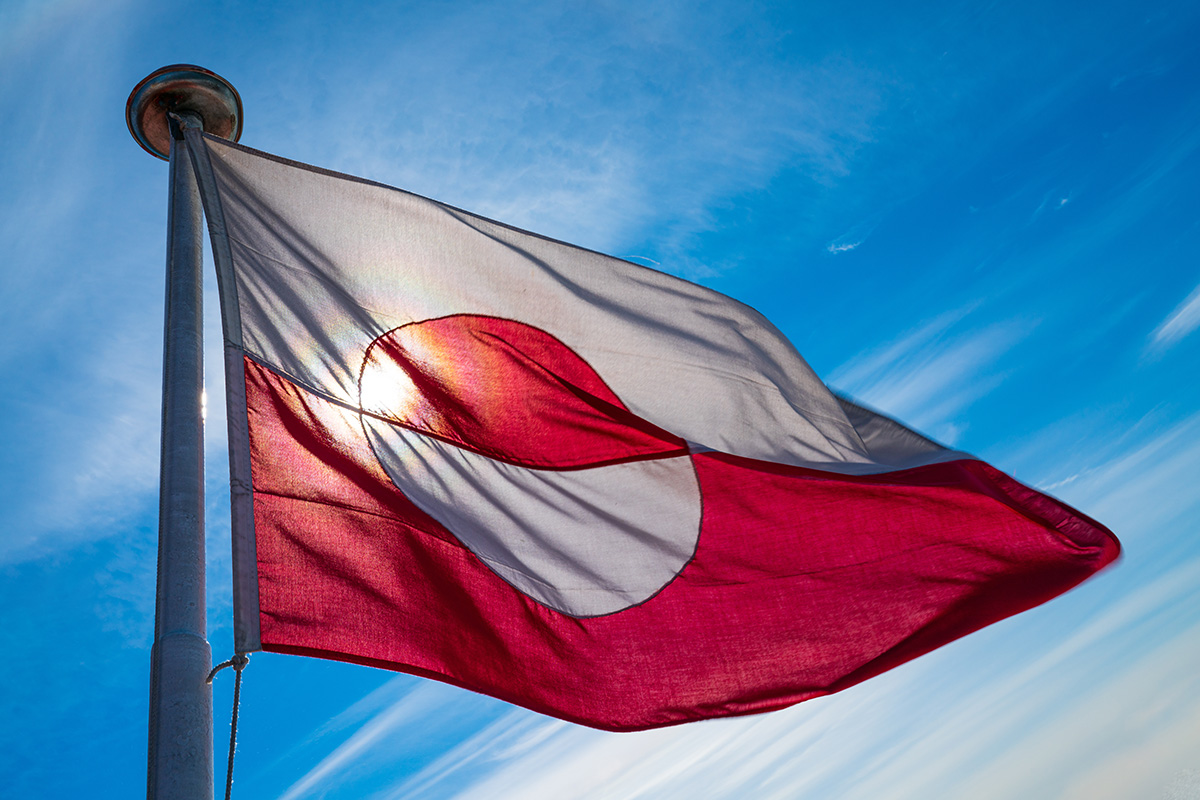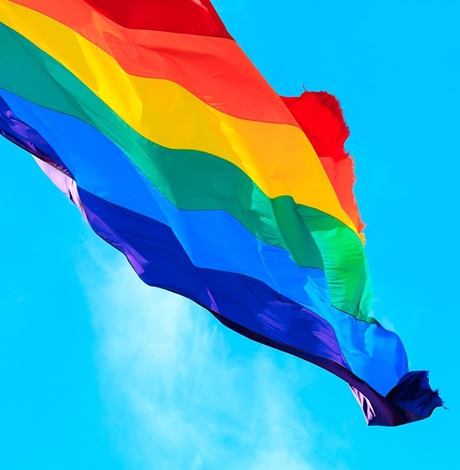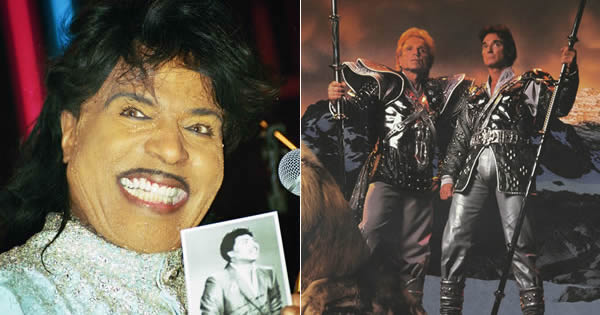Opinions
Feminist, trans advocates should support Bradley Manning
Wikileaks suspect sought to create a better-informed democracy
By Rainey Reitman
Some thoughtful feminist scholars have recently called on the Bradley Manning Support Network to begin referring to the accused WikiLeaks whistle-blower with a female pronoun. Emily Manuel’s essay in Global Comment highlighted why many of us who strongly support transgender rights are sensitive to the pronouns we use when we refer to Manning.
As an ardent supporter of Bradley Manning and a feminist, I have given this issue a great deal of thought. Given the unusual and perhaps unprecedented circumstances of the situation, I wanted to explain why I’m still calling him Bradley. In so doing, I also hope to demonstrate why folks who care passionately about queer and transgender rights should come out in support.
First, we should bear in mind the basis upon which some have made suppositions about Manning’s preferred gender identity. By and large, we are dealing with evidence that has not been established as fact. We can look at some Google searches found in forensic evidence, a smattering of late-night private chat logs, and potential testimony from those in whom Manning may have privately confided.
If these materials are to be believed, then it appears that Manning was questioning his gender identity. Manning’s lawyers have noted that he had sought counseling, but we don’t know if any final decision was ever made. We don’t know whether Manning wanted “Breanna” to be a primary identity, or if this was an alter ego that was never meant to be indicative of primary gender identification. We do know — from our own private conversations with friends and family members — that prior to his incarceration, Manning had not asked people to refer to him with a female pronoun.
The decision to transition – especially when it entails life-changing hormones or even surgery – isn’t something undergone lightly or quickly. Like many who are unsure about their gender identification, Manning used the Internet as a sandbox to begin experimenting with these complex issues. Unfortunately, he was arrested and forced to undergo many torturous months in solitary confinement, without proper medical, social, and emotional support during this time of questioning. We don’t know whether he reached a final decision.
From the earliest stages, the Bradley Manning Support Network has sought to honor Manning’s choices. Early in the campaign, we reached out to Manning’s aunt and lawyer and asked what name he preferred we use in our advocacy. They got back to us to say that “Brad” or “Bradley” would be fine.
Since then, we’ve sent Bradley packages in the mail showing him the fliers, stickers, postcards, T-shirts and photos of rallies all emblazoned with the name “Bradley Manning.” Manning has issued three public statements since his incarceration: during his first Christmas behind bars he issued holiday wishes; after many long months in solitary confinement he released a multi-page letter describing his abusive conditions; and after the pretrial hearing in December, he communicated through his aunt that he appreciated our support.
Notably, he didn’t ask us to start referring to him as Breanna. Advocates for Manning have an obligation to respect his agency and use the pronoun he had preferred prior to his arrest. None of us has the right to switch pronouns for Manning unless he tells us otherwise.
We also need to bear in mind that PFC Manning is currently – and quite literally – fighting for his life. He faces ridiculous charges of “aiding the enemy,” which carry a maximum sentence of death, despite the fact that our government’s own impact assessments found no harm to national security from the WikiLeaks materials. This extreme retaliation against Manning for uncovering war crimes stands in stark contrast to the military’s recent decisions to let other soldiers, who have admitted to killing unarmed civilians, walk free with nothing more than a cut in their pay.
This is not the normal legal environment that we may remember from our high school civics class. This is a show trial of a political prisoner. The military is openly abusing Manning of his rights in order to create a calculated psychological impact, and no doubt as a sharp warning to others who might consider exposing crimes and corruption.
Manning has been subjected to prolonged solitary confinement, which carries the risk of severe psychological damage. During that time, he was on several occasions ordered to remove his clothing and stand at “parade rest” in front of his guards. Those in the military know that this position requires you to place your hands behind your back. By all accounts, PFC Manning was the only detainee at the Quantico brig who was subjected to this peculiar form of humiliation. Military officials have since refused to turn over video-recordings that they made of these incidents.
It is difficult to conclude that this very specific form of degrading treatment has nothing to do with the fact that Manning was known to be questioning his gender identity.
When pressed on the mistreatment at a White House press conference, President Obama suggested that these absurd measures were imposed on Manning for his own safety. This excuse contradicted the findings of brig psychiatrists tasked with evaluating Manning, who found on every occasion that he posed no threat to himself in custody.
In this environment, those of us who have the luxury of relative freedom need to recognize that Manning might not be able to say everything that he really wants to say. In fact, we know this to be true. There have been several occasions in which meetings between Manning and his attorneys have been recorded by the military. Military officials have blocked Juan Mendez, the United Nations Special Rapporteur on Torture, from having a private meeting with PFC Manning. Manning has rejected an offer from the military to allow him to meet with Mendez on the condition that the meeting be monitored.
In short, Bradley Manning is being silenced. Whether through these direct restrictions on his ability to communicate freely, or more subtly through media narratives that attempt to erase his political agency, the establishment does not want us to hear Manning’s true voice.
Each one of us working with the Bradley Manning Support Network anxiously awaits the day when Bradley Manning can speak freely, unencumbered by the shackles of oppression and injustice. But until that time, we can’t presume to speak for him, especially on an issue as personal and yet political as gender identification.
Lt. Daniel Choi, who was discharged from the Army for being openly gay, recently called on the queer community to stand up for Bradley Manning. In an interview with Keith Olbermann, he decried the media’s portrayal that Manning’s sexual or gender identity was being used an excuse. He instead noted that Manning had displayed the highest level of integrity in his actions:
“I think at this point we can’t say that he did any of this or didn’t do any of this because he’s gay or transgender. He did this because he’s a good soldier… I’m proud of him as a gay soldier because he stood for integrity. And Keith, one thing about the gay community is that our community, among all of the communities in the world, we’re the only one that bases its membership -— its membership — on integrity and telling the truth about ourselves, declassifying that information for the betterment of our entire lives and societies and families. And when we do that, we realize that the gay movement is more important than just for gay people alone.”
All available evidence points to Manning being driven by integrity. At the Article 32 hearing, military prosecutors submitted a note allegedly attached by Manning to the materials they say he sent to WikiLeaks concerning the wars in Iraq and Afghanistan. It read:
“This is perhaps one of the most significant documents of our time, removing the fog of war and revealing the true nature of 21st century asymmetric warfare.”
This seems to be the core motivation for Manning: to enlighten and educate the world, to create a better-informed democracy, to shed sunlight on the darkness covering our foreign policies and ongoing wars overseas. And, as queer activists have long known, there is power and transcendence in choosing truth, even when that truth makes others uncomfortable.
Rainey Reitman is a writer and a feminist. She sits on the Steering Committee of the Bradley Manning Support Network.
Opinions
The felon in the White House must be stopped
Are there any decent Republican members of Congress left?

We are up shit’s creek if the felon in the White House actually thinks he has a Nobel Peace Prize. If he believes he deserves one, or Venezuelan opposition leader Maria Corina Machado had any other reason to give him hers, than it was easier, and less degrading, than going on her knees to him, as a number of men already have. I don’t know if she understood how many millions the medal could be worth. Instead, she could have used it for her people, if she didn’t want to keep it.
Machado was awarded the Nobel Prize for her work for the Venezuelan people. She spoke up for them, and fought for them. The felon couldn’t care less about them. He proved that by invading, and then supported Maduro’s vice president as president. He said he, and his fascist cohorts, would run the country, and is now stealing their oil and personally deciding what to do with it. After U.S. troops captured Venezuelan President Nicolás Maduro, Trump said, Venezuelan opposition leader Maria Corina Machado “doesn’t have the support within Venezuela to be its next leader, she was not consulted prior to the operation.” He went on to say, “I think it would be very tough for her to be the leader. She doesn’t have the support within or the respect within the country.” This is the slime bag she gave her Nobel Peace Prize medal to. I hope she is not naïve enough to believe he really cares about her, or her countrymen, and women.
Trump is vile, sick, and mentally deranged. He is threatening foes and allies alike. They see bending a knee to him only works for the moment, but has no long-term impact on his tiny brain. Today, he is threatening Greenland, and our NATO allies are moving their military to Greenland to protect it against the United States. Now he is threatening them with new tariffs. That would have once been unfathomable. He is saber rattling over Iran, Colombia, even Mexico. He is bombing Nigeria and Syria.
If that weren’t enough, he threatens to use the Insurrection Act to send the military into cities here. He has already sent in thousands of ICE agents. ICE is classified as a federal law enforcement agency under the Department of Homeland Security. They have authority to arrest, detain, and investigate immigration violations. However, the law is clear; ICE agents do not have unlimited power. They face significant constitutional restrictions that many people don’t realize, especially when it comes to entering homes and private spaces. But what is clear, in Minneapolis today, some of the agents are acting like the Gestapo. They are smashing car windows, pulling people out of their cars, invading homes, and workplaces, all without first having any proof the people they are going after are guilty of anything. I believe we need fair immigration laws, and they should be enforced. But this is clearly not what the felon is doing. The felon in the White House and his incompetent stooge at Homeland Security, Kristi Noem, who has no idea what the hell she is doing, are acting egregiously, and making a mockery of our democracy.
The president, Noem, Hegseth, Bondi, and the other incompetents in the felon’s Cabinet, simply pretend to forget the history of the United States. They don’t want to accept the truth; we are a nation of immigrants. It is immigrants who built our country, and are still building it. My parents were immigrants escaping from Hitler, and they came here and built a life, and in doing so, added to the greatness of our country. I want every person around the world who needs to escape from dictators, and despots, to be able to do the same as my parents did. We need to build an immigration system that allows them to do that. Instead, because of what this felon is doing, we are seeing American citizens thinking of leaving this country, and looking for asylum in others. That is really sick, but it’s happening.
Sitting in the Oval Office today we have a felon who is reveling in becoming the war president. He is taking the United States down an incredibly dangerous path, threatening our own citizens with violence here at home, and doing the same to our allies around the world. He, and the incompetents and fascists surrounding him, need to be stopped. If there are any decent Republican members of Congress left, they need to join with Democrats, and the voters, to stop him.
Peter Rosenstein is a longtime LGBTQ rights and Democratic Party activist.

January arrives with optimism. New year energy. Fresh possibilities. A belief that this could finally be the year things change. And every January, I watch people respond to that optimism the same way. By adding.
More workouts. More structure. More goals. More commitments. More pressure to transform. We add healthier meals. We add more family time. We add more career focus. We add more boundaries. We add more growth. Somewhere along the way, transformation becomes a list instead of a direction.
But what no one talks about enough is this: You can only receive what you actually have space for. You don’t have unlimited energy. You have 100 percent. That’s it. Not 120. Not 200. Not grind harder and magically find more.
Your body knows this even if your calendar ignores it. Your nervous system knows it even if your ambition doesn’t want to admit it. When you try to pour more into a cup that’s already full, something spills. Usually it’s your peace. Or your consistency. Or your health.
What I’ve learned over time is that most people don’t need more motivation. They need clarity. Not more goals, but priority. Not more opportunity, but discernment.
So this January, instead of asking what you’re going to add, I want to offer something different. What if this year becomes a season of no.
No to things that drain you. No to things that distract you. No to things that look good on paper but don’t feel right in your body. And to make this real, here’s how you actually do it.
Identify your one true priority and protect it
Most people struggle with saying no because they haven’t clearly said yes to anything first. When everything matters, nothing actually does. Pick one priority for this season. Not 10. One. Once you identify it, everything else gets filtered through that lens. Does this support my priority, or does it compete with it?
Earlier this year, I had two leases in my hands. One for Shaw and one for National Landing in Virginia. From the outside, the move felt obvious. Growth is celebrated. Expansion is rewarded. More locations look like success. But my gut and my nervous system told me I couldn’t do both.
Saying no felt like failure at first. It felt like I was slowing down when I was supposed to be speeding up. But what I was really doing was choosing alignment over optics.
I knew what I was capable of thriving in. I knew my limits. I knew my personal life mattered. My boyfriend mattered. My family mattered. My physical health mattered. My mental health mattered. Looking back now, saying no was one of the best decisions I could have made for myself and for my team.
If something feels forced, rushed, or misaligned, trust that signal. If it’s meant for you, it will come back when the timing is right.
Look inside before you look outside
So many of us are chasing who we think we’re supposed to be— who the city needs us to be. Who social media rewards. Who our resume says we should become next. But clarity doesn’t come from noise. It comes from stillness. Moments of silence. Moments of gratitude. Moments where your nervous system can settle. Your body already knows who you are long before your ego tries to upgrade you.
One of the most powerful phrases I ever practiced was simple: You are enough.
I said it for years before I believed it. And when I finally did, everything shifted. I stopped chasing growth just to prove something. I stopped adding just to feel worthy. I could maintain. I could breathe. I could be OK where I was.
Gerard from Baltimore was enough. Anything else I added became extra.
Turning 40 made this clearer than ever. My twenties were about finding myself. My thirties were about proving myself. My forties are about being myself.
I wish I knew then what I know now. I hope the 20 year olds catch it early. I hope the 30 year olds don’t wait as long as I did.
Because the only way to truly say yes to yourself is by saying no first.
Remove more than you add
Before you write your resolutions, try this. If you plan to add three things this year, identify six things you’re willing to remove. Habits. Distractions. Commitments. Energy leaks.
Maybe growth doesn’t look like expansion for you this year. Maybe it looks like focus. Maybe it looks like honoring your limits. January isn’t asking you to become superhuman. It’s asking you to become intentional. And sometimes the most powerful word you can say for your future is no.
With love always, Coach G.
Gerard Burley, also known as Coach G, is founder and CEO of Sweat DC.
Greenland
The Greenland lesson for LGBTQ people
Playbook is the same for our community and Europeans

I understand my own geopolitical limits and don’t pretend to know how Europeans should respond to U.S. threats to seize Greenland or retaliate against anyone who opposes them. However, as I mentioned in March, it’s clear that for Europeans and LGBTQ+ people alike, hug-and-kiss diplomacy is over.
In practice, that means responding to the U.S. administration’s provocations with dialogue, human‑rights rhetoric, and reasoning may now be counterproductive. It looks weak. At some point, Europeans will have to draw a line and show how bullying allies and breaking international agreements carry a cost — and that the cost is unpredictable. On the surface, they have few options; like LGBTQ+ communities, they are very behind in raw power and took too long to wake up. But they still have leverage, and they can still inflict harm.
Maybe it is time for them to call the bluff. America has a great deal to lose, not least its reputation and credibility on the world stage. Stephen Miller and Pete Hegseth, with all their bravado, obviously underestimate both the short‑ and long‑term geopolitical price of ridicule. Force the United States to contemplate sending troops into an ally’s territory, and let the consequences play out in international opinion, institutions, and markets.
In the United States, LGBTQ+ communities have already endured a cascade of humiliations and live under constant threat of more. In 2025 our symbols and heroes were systematically erased or defaced: the USNS Harvey Milk was quietly renamed after a straight war hero, Admiral Rachel Levine’s title and image were scrubbed from official materials, Pride flags were banned from public buildings, World AIDS Day events were defunded or stripped of queer content, the Orlando memorial and other sites of mourning were targeted, the U.S. lead a campaign against LGBTQ+ language at the U.N., and rainbow crosswalks were literally ripped up or painted over. We cannot simply register our distress; we must articulate a response.
In practice, that means being intentional and focused. We should select a few unmistakable examples: a company that visibly broke faith with us, a vulnerable political figure whose actions demand consequences, and an institution that depends on constituencies that still need us. The tools matter less than the concentration of force — boycotts, shaming, targeted campaigning all qualify — so long as crossing certain lines produces visible, memorable costs.
A friend suggested we create what he called a “c***t committee.” I liked the discipline it implies: a deliberate, collective decision to carefully select a few targets and follow through. We need a win badly in 2026.
These thoughts are part of a broader reflection on the character of our movement I’d like to explore in the coming months. My friends know that anger and sarcasm carried me for a long time, but eventually delivered diminishing returns. I am incrementally changing these aspects of my character that stand in the way of my goals. The movement is in a similar place: the tactics that served us best are losing effectiveness because the terrain has shifted. The Greenland moment clarifies that we must have a two-pronged approach: building long-term power and, in the short term, punching a few people in the nose.

















